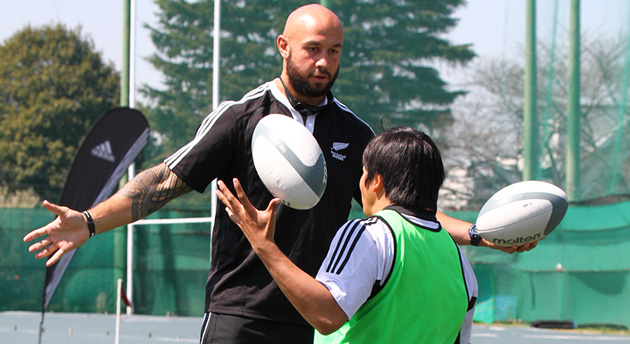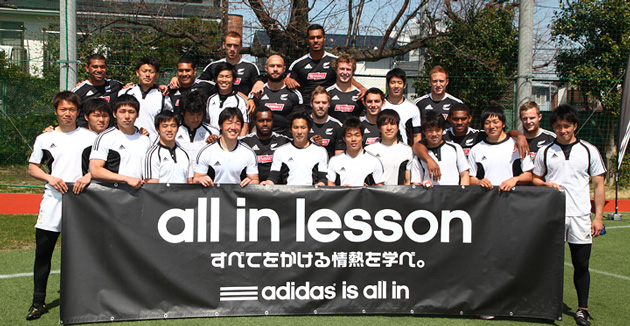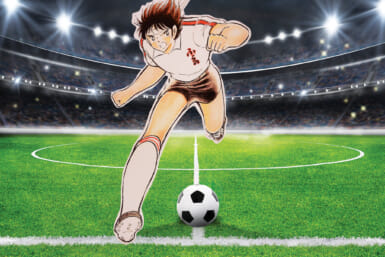Kiwi Rugby Legends Visit Waseda Ahead of HSBC Sevens
The HSBC Sevens World Series arrives in Tokyo this weekend and undoubtedly one of the biggest attractions will be New Zealand. They may not be as well known as the illustrious World Cup winning All Blacks, but there is no doubt that sevens rugby is climbing out of the shadows of the 15’s game.
The side took some time out from their busy schedule on Thursday to coach students from Waseda University. It was a great opportunity for the youngsters to learn about the sport from some of the leading figures in the game, including the Kiwis coach, Gordon Tietjens and captain, DJ Forbes.
The popularity of sevens rugby is increasing all the time at and it’s potential for growth heightened even further following the decision to sanction it as an Olympic sport, set to debut in Rio in 2016.
There is much more space and a greater emphasis on speed than in the traditional 15’s game and according to Gordon Tietjens it is more physically demanding.
“The conditioning of the players is different, you have to be a lot fitter and you need to work more on strength endurance. It is very tough, both mentally and physically,” he said. “Defensively it is a very challenging game as well. You can be exposed in a huge way in a game of sevens, whereas in 15’s, you can be covered up by more numbers.”
Sevens used to be seen as a sport where players could develop their skills before moving on to the 15-man game, that is no longer the case though as the smaller version of rugby grows in stature, meaning fewer players are making the switch.
“I don’t believe that rugby players will be able to play both forms of the sport. The sevens tour takes up several months, so they will have to make a choice. It has become impossible to do both.,” said Tietjens. “I also think it is so much easier to move from sevens to 15’s than it is to from 15’s to sevens.”
It is a view echoed by his captain, DJ Forbes. The 29 year old has become a key player for the All Blacks since making the switch from the 15-a-side game, but he initially found it difficult.
“The biggest thing I had to work on was my fitness. I’ve always been naturally fit, but I had to really step it up. There is a minimum standard and that is why some players don’t make the cut. It is a completely different game,” said the sevens icon.
“You have to work a lot harder and there are times when you are isolated. You also don’t have as much time to work yourself in to a game and one bounce of the ball could turn your tournament upside down.”
He will be hoping the ball bounces in favor of his side this weekend. New Zealand go in to the tournament as one of the big favorites after finishing runners-up to Fiji in Hong Kong. Before they can start thinking about getting revenge for that defeat though, they must come through what is a difficult first round group, involving Australia, Hong Kong and USA.
Dates: March 31 – April 1
More info: www.jrfu.org
Location: Prince Chichibu Memorial Rugby Ground, Tokyo / TV Asahi.
Visit the International Rugby Board website for a tournament overview: www.irb.com
View Larger Map










